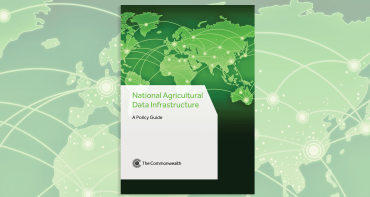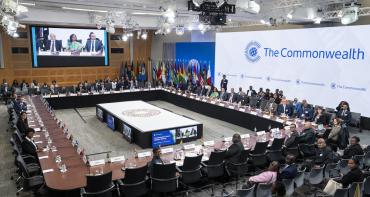Most vulnerable countries face problems accessing climate change funds
The Commonwealth has called on the G-24 and international organisations to support vulnerable countries to access international funding for climate change.
The Director of the Commonwealth Secretariat’s Economic Affairs Division, Dr Cyrus Rustomjee, told the G-24 Technical Meeting in Washington DC, USA, from 24 to 25 August 2011, that the world’s poorest, smallest and most vulnerable countries have limited access to climate change funds.
The Commonwealth’s member states include some of the most vulnerable countries to climate change, including small island developing states (SIDS), low-lying coastal states, least developed countries (LDCs) and other African member states. These countries face both a high exposure to risks from climate change, and significant constraints in their human and institutional capacities in responding to the challenges.
|
NAPAs provide a process for LDCs to identify priority activities that respond to their urgent and immediate needs to adapt to climate change – those for which further delay would increase vulnerability and/or costs at a later stage. Source: UNFCCC |
Dr Rustomjee said vulnerable countries were not getting an equitable allocation of climate finances, with the 15 LDCs in the Commonwealth thus far only receiving US$67 million for their National Adaptation Plans of Action (NAPAs).
“There needs to be an internationally agreed formula for fund disbursement, together with monitoring of country flows to secure equal disbursement to countries in need of funding,” he stressed.
Dr Rustomjee recommended that international organisations such as the G-24 and the Commonwealth can play a valuable role in reviewing NAPAs which have not been allocated funds, and look at the priorities for LDCs, SIDS, low-lying coastal states and highly vulnerable countries.
He said international organisations can support the preparation of new NAPAs, and build up mitigation strategies for vulnerable countries.
In the area of finance, he encouraged international organisations to help countries examine more closely public and private sources of finance, as well as to develop a database of national climate finance spending.
He also raised the need for recipient countries to have ownership over the process of climate financing, and for it to be integrated into the country’s planning and budgeting mechanism, for it to be successful.
|
The Intergovernmental Group of Twenty-Four on International Monetary Affairs and Development (G-24) was established in 1971. The purpose of the group is to co-ordinate the position of developing countries on monetary and development issues, and to ensure increased representation and participation of developing countries in negotiations on the reform of the international monetary system. Source: http://www.g24.org/ |
Dr Rustomjee added that SIDS, LDCs, low-lying coastal states and other highly vulnerable countries were missing out on funding because of resource constraints at the national government level, which inhibited their ability to create comprehensive action plans and to secure climate financing. International support was needed to strengthen national capacities, he said.
Vulnerable countries also missed out on a second area of climate funding for mitigation - to lessen their impact on the environment - because of their size and lack of carbon emissions. Carbon Offsetting is available to only a few countries.



